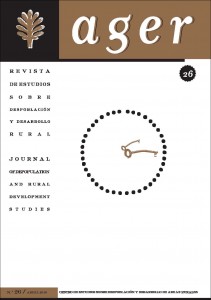From farms to firms: rural industrialisation under the “Swedish model” of organised capitalism
Resumen
How could rural communities prosper when the agricultural population was reduced to just a few percent? This study uses evidence from western Sweden to discuss rural industrialisation as a possible path of development. A paradox in occupational development is the starting point. While much of the rural population left the countryside in search of better job opportunities in the cities, many of the jobs within manufacturing were relocated from city to countryside. Scattered across rural Sweden, we find a number of small municipalities that became sites for growing industry, especially within mechanical engineering. The article argues that much of the industrial dynamism found in these regions was based on knowledge, labour, entrepreneurship and capital derived from the traditional rural structure of family farming and small-scale handicraft. One important engine was the disintegration of the older agrarian system, which freed resources previously bound to agriculture for the expansion of manufacturing.
Developments are compared to the growth of industrial districts in “Third Italy” and Early Modern protoindustrialization. In the final section, rural industrialisation is discussed from an institutional perspective, in relation to the “Swedish model” of organized capitalism. It is argued that this model probably slowed the development of small-scale rural industries, supporting instead large-scale industrial concentration. However, in an institutional situation characterized by standardized central solutions, the flexible character of many rural industries actually offered an advantage – and this flexibility has been a strategic resource in the country’s industrial infrastructure.
Descargas
Publicado
Cómo citar
Número
Sección
Licencia
Aquellos autores/as que tengan publicaciones con esta revista, aceptan los términos siguientes:
- Los autores/as conservarán sus derechos de autor y garantizarán a la revista el derecho de primera publicación de su obra, el cuál estará simultáneamente sujeto a la Licencia de reconocimiento de Creative Commons que permite a terceros compartir la obra siempre que se indique su autor y su primera publicación esta revista.
- Los autores/as podrán adoptar otros acuerdos de licencia no exclusiva de distribución de la versión de la obra publicada (p. ej.: depositarla en un archivo telemático institucional o publicarla en un volumen monográfico) siempre que se indique la publicación inicial en esta revista.
- Se permite y recomienda a los autores/as difundir su obra a través de Internet (p. ej.: en archivos telemáticos institucionales o en su página web), lo cual puede producir intercambios interesantes y aumentar las citas de la obra publicada. (Véase El efecto del acceso abierto).

